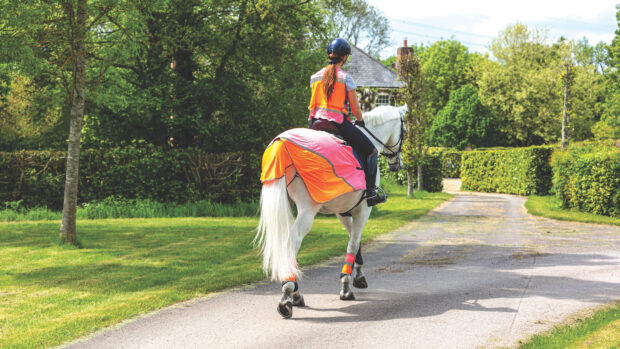The International Equestrian Federation (FEI) has fined British endurance rider Alice Beet and a company owned by Sheikh Mohammed after a failed dope test by an endurance horse. The case is a warning to riders of loaned horses.
Alice, 19, a member of the British young rider squad, has been fined 500 Swiss Francs (£210) and banned for three months by the FEI after the horse she borrowed from Sheikh Mohammed for the World Young Rider Championships in Bahrain last December tested positive for an anti-inflamatory steroid.
Sheikh Mohammed’s company, Atlantic Endurance SARL, under whose banner he loaned the horse, Harmatan De Lozere, was fined SFR1,500 (£640).
The FEI’s judicial committee accepted the horse was under the exclusive care of Atlantic Endurance SARL’s employees until the morning of the event and agreed it was “most likely” the substance entered the horse while in the “owner’s” care.
The company “merely stressed no wrongdoing was done by its staff” and provided no explanation for the positive test.
Alice Beet is an experienced international rider, and finished 38th in Bahrain on Harmatan De Lozere. In written evidence, she stressed she had no access to the horse other than to exercise it before the ride.
The committee heard testimony from Britain’s chef d’equipe and team vets, and Sheikh Mohammed’s trainer Ismail Mohammed, who described Ms Beet as “a sensible and dedicated rider”.
But the panel found it was for the rider as the “person responsible” (PR) to prove there had not been a deliberate attempt to affect the performance of the horse and that Ms Beet had failed to do so.
The panel concluded: “This case highlights the difficulty of cases in which the rider is not the owner of the horse. This is becoming increasingly problematic in view of the relatively high number of such cases that have been submitted to the FEI judicial committee, most commonly in endurance riding.”
The panel ruled it would be unfair for riders of borrowed horses to be let off, “otherwise blame may always be transferred to third parties”.
The panel stressed riders must ensure borrowed horses were free from prohibited substances. It suggested riders obtain written statements from owners agreeing to take full responsibility if banned substances are found and seek blood tests.
Ms Beet, in written evidence to the panel, said: “I have learned from this experience and in the future, I will take hands-on control of the diet and security for any horse I have agreed to ride.”



